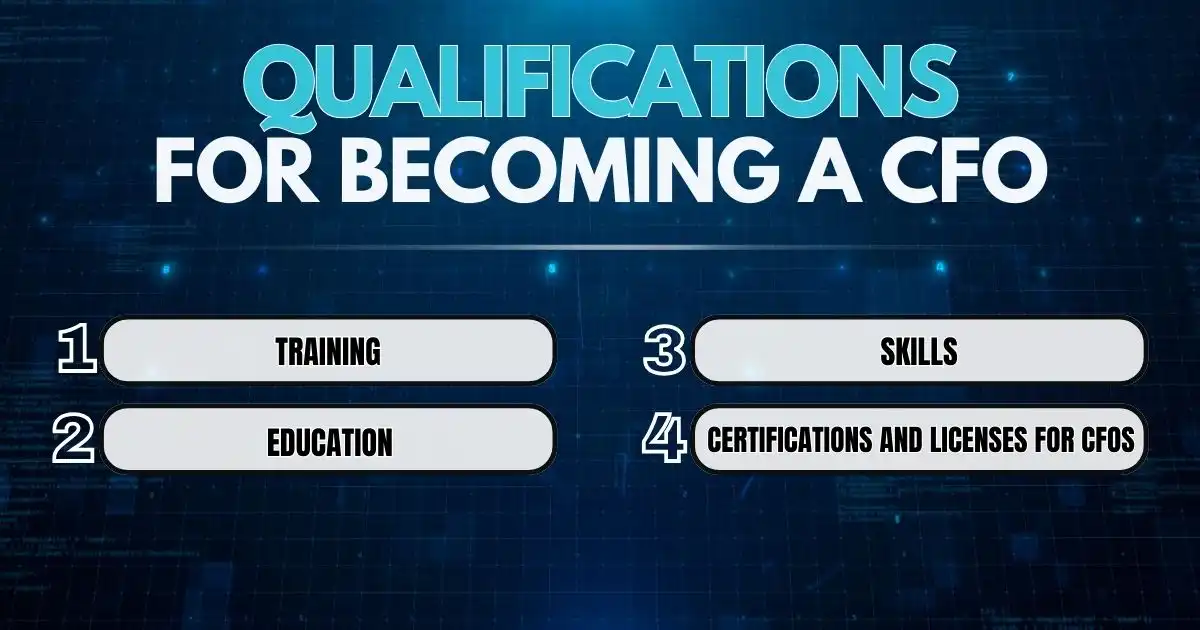Did you know? Joe Berchtold, the President and CFO of Live Nation Entertainment, earned an impressive $52.4 million in 2023, making him the highest-paid CFO in the United States.
His position at Live Nation shaped the company’s strategy and financial plans, thanks to his extensive background in the entertainment industry and financial management.
Many aspiring CFOs wonder how they can achieve similar success and earn a high salary.
What is a CFO?
The Chief Financial Officer (CFO) is important in any organization. They manage the company’s finances and business operations, including financial planning, analysis, accounting, taxes, and risk management. Here are the five main responsibilities of a CFO:
- Developing and carrying out financial strategies.
- Overseeing budgeting, forecasting, and financial reporting.
- Managing financial risks and ensuring compliance with laws.
- Building and maintaining relationships with investors and stakeholders.
- Providing financial advice to the company’s senior management.
In short, the CFO is an essential member of the executive team, offering important financial insights and guidance to the managing director, senior executives, and vice president to help the organization succeed.
Responsibilities of a CFO
A CFO is a senior position that works closely with the CEO and other leaders to help a company succeed. CFOs must have strong finance and accounting skills and many years of experience to improve the organization’s financial health.
CFOs often collaborate with the finance and accounting teams to forecast the impact of various business decisions. Their typical responsibilities include:
- Meeting with departments such as accounting, customer service, and finance.
- Solving accounting and finance issues.
- Communicating with clients, investors, company leaders, and stakeholders.
- Managing cash flow and planning for financial needs.
- Overseeing the financial department and providing guidance.
- Helping with risk management, audits, and research.
- Identifying investment opportunities and financial planning options.
- Working with other executives and department heads to create and manage budgets.
- Preparing quarterly and annual tax filings.
- Attending board meetings to present detailed financial reports and recommendations to company leadership.
Qualifications for Becoming a CFO

Becoming a CFO is a significant accomplishment that involves meeting specific qualifications. CFOs are important in managing a company’s finances and helping it succeed.
To become a CFO, you need to meet several key qualifications, including:
1. Training
Preparing for the CFO role generally involves a mix of formal education and on-the-job training in lower-level positions. Many top executives, including CFOs, are promoted from within after accumulating substantial experience in financial management roles.
Aspiring CFOs often begin as accountants or financial analysts before advancing into management positions. Some companies also offer formal management training programs to help financial professionals develop their leadership skills.
2. Education
Candidates for this executive position typically need at least a bachelor’s degree in accounting, finance, or a related field. These programs provide essential coursework that helps students develop analytical skills and learn about financial analysis techniques and software.
Some companies may prefer or require candidates to have a Master of Business Administration (MBA). This program usually takes two years to complete and can often be pursued while working full- or part-time. Additionally, some MBA programs might require candidates to have prior work experience.
3. Skills
Successful CFOs possess a range of essential skills for their roles, including:
- Communication Skills: CFOs must be able to communicate clearly and persuasively, both verbally and in writing. They need to effectively discuss financial strategies with executives, guide their teams, and convey policies or decisions to stakeholders.
- Leadership Skills: This encompasses the ability to delegate, motivate, and demonstrate honesty and integrity. CFOs identify financial strategies, assign tasks to their team, and inspire them to reach their goals efficiently.
4. CFO Certifications and Licenses
While not always required, many CFOs pursue certifications or licenses to demonstrate their expertise and commitment to the field. Some options include:
- Chartered Financial Analyst (CFA) Certification: Offered by the CFA Institute, this certification focuses on investment analysis and portfolio management, combining theory with industry practices and professional standards.
- Certified Treasury Professional (CTP): This certification highlights expertise in treasury management, emphasizing skills in cash processing, reconciliation, and financial statement analysis.
- Certified Public Accountant (CPA): CPA requirements vary by state, but all candidates must complete 150 hours of postsecondary education, including some graduate-level courses. Candidates must also pass four exams within 18 months to obtain their CPA license, which must be maintained through continuing education.
5 Tips to Earn Big as a CFO

How can motivated CFOs build a successful career and become highly valued in the job market? What steps should they take to direct their energy and enthusiasm into a career that provides the right combination of experiences and lessons needed for any CFO position?
1. Gain Skills in Risk Management
In recent years, businesses have faced major challenges like a global pandemic, war, cyber threats, inflation, energy issues, and supply chain problems. These events have kept CFOs busy in the boardroom.
During tough times, CFOs need to be brave and creative in managing risks. With new macro risks emerging, the field of risk management is evolving, requiring CFOs to rethink their strategies.
2. Be Skilled in Data and Advanced Analytics
To be a strong candidate for the CFO role, it’s important to understand data, analytics, and advanced technologies like generative AI for financial planning. This knowledge is vital for many positions, and CFOs can use it in various ways.
They can use data and analytics to reduce costs, understand customer behavior, make faster decisions, and spot new market trends. This ensures a consistent approach to managing data throughout the organization. Since not all companies have a chief data officer, CFOs must find reliable data and understand the broader insights it offers.
3. Gain Business Experience
Today, the role of a CFO includes many different responsibilities. To be a strong candidate, it’s important to have varied professional experience, especially in the business sector.
Having business experience helps a CFO develop better strategies, improve their relationship with the CEO, and build connections with departments outside of finance, such as communications and marketing.
A study found that CFOs with broad business experience are 30% more likely to be seen as effective leaders. This diverse background allows them to understand the company better and contribute more to its success.
4. Develop Partnership Skills
The CFO position is important for an organization, requiring strong finance knowledge and teamwork. Finance executives should learn to collaborate with both internal and external colleagues. This is important because CFOs build relationships with outside partners like bankers, lawyers, and communication advisors.
Research shows that companies with strong partnerships often perform better and can adapt more easily to changes in the market. By developing these partnership skills, future CFOs can enhance their effectiveness and contribute to their organization’s success.
5. Work Closely with the CEO
The relationship between the CFO and CEO is like that of a captain and first officer on a ship. They work together, but the CEO has the main responsibility and makes the final decisions. Today, CFOs are expected to be key advisors to the CEO, partnering on important projects such as strategy and business changes.
This includes areas like environmental, social, and governance (ESG) compliance and reporting. Studies show that companies with strong CFO-CEO collaboration often see better financial performance and decision-making.
From Seeds to Success
To earn a high salary as a CFO, you need a combination of education, experience, and strong skills. Just as a gardener cares for their plants to help them thrive, aspiring CFOs must nurture their knowledge and build relationships to grow in their careers.
Are you ready to plant the seeds for your future success and develop the skills needed to reach the top? With commitment and the right strategy, you can follow the path to becoming a highly valued CFO and enjoy great rewards along the way.
FAQs
Which CFO makes the most money?
As of 2023, Joe Berchtold, the CFO of Live Nation Entertainment, earned the most money, taking home $52.4 million.
How can I be a strong CFO?
To be a strong CFO, focus on building your financial knowledge, gaining experience in finance and management, and developing good communication skills. It’s also important to work well with other teams and build strong relationships.
How do I become a CFO of a large company?
To become a CFO of a large company, you usually need a bachelor’s degree in finance or accounting. Gaining experience in finance roles, like being an accountant or financial analyst, is essential. Pursuing advanced degrees, like an MBA, and earning certifications can also help.
How can a CFO increase revenue?
A CFO can increase revenue by identifying new business opportunities, improving financial planning, and managing costs more effectively. They can also help the company make smart investments and improve pricing strategies to boost sales.
